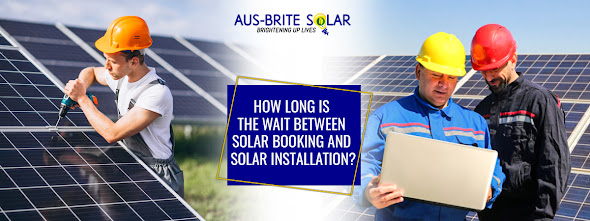Across Australia, more and more people are starting to invest in solar energy systems. Solar energy is one of the most promising and cost-effective renewable energy generating systems. It provides you with peace of mind and protection for the future and can save you lots of money in the long run.
If you’re thinking of buying solar panels for your home, it’s easy to get overwhelmed. The truth is, there are many things to consider when buying solar panels.
To help you decide if solar power is the right option for you, your home, or your business, we've put together a list of the top 8 things to consider before installing these solar panels on your roof.
 |
| 8 Things to Consider Before Installing Rooftop Solar Panels |
1. Does your roof need repairs?
Before you even consider installing solar panels, ask yourself how old is my roof. If you know that you will need a new roof soon or that part of your roof is damaged, installing solar panels is probably not the best idea. If you can, make repairs to the roof before installation. This way, you won't have to pay more to disassemble the artwork and then reassemble it (in some cases for at least 20 years).
Another aspect to consider is the warranty on your roof versus the warranty on the solar panels. If you have solar panels that will last 20 years and a roof that will only last 10-15 years, you increase maintenance costs. Try to match the two projects in terms of duration to reduce the amount of effort, time, and money you will need to invest.
2. What is the shape of your roof?
Roofs come in different shapes and sizes. Before proceeding with any installation, make sure your roof has enough space for the solar panels. If there isn't enough space, you probably won't get the return you expect on your investment.
3. In what direction are the slopes of your roof facing?
Solar panels require a specific location to generate the maximum amount of energy. Most professionals say that the best location is to have the panels facing south, while others say that it is west. Either way, it is important to determine this information before beginning the installation.
4. How much weight can your roof support?
Installing solar panels will add weight to your roof structure. If the weight of these solar panels is too much for your roof, it may collapse. This is very dangerous for many reasons, not to mention cost. To avoid both situations, your roof must be professionally evaluated to determine if additional support is required to complete the installation.
5. Where will the water go?
When it rains, the water runs along the roof, into gutters, and outside your home. By installing solar power systems, equipment such as shelving and wiring harnesses can prevent water from flowing and draining properly. In some cases, solar equipment can move water in a different direction, which can create leaks and other problems. These issues will need to be fixed, which means the solar panels will need to be removed.
To avoid all of these problems, be sure to tell your contractor about these concerns. They can present you with a plan to demonstrate that the facility will have no impact on water runoff.
6. What about the other surprises of nature?
Part of maintaining your solar power system is dealing with extreme weather conditions like thunderstorms, hurricanes, hail, etc. Some solar equipment may be damaged during these events. While some insurances cover these types of events, this is something to consider, especially if you live in an area where this type of weather occurs frequently.
7. Did you choose the cheapest options?
Cheaper solar panels rarely translate into better solar panels. While the price of the technology has fallen dramatically over the past decade, investing in the cheapest solar panel models or brands may leave you in the dark. Cheaper or lower-end solar panels are often manufactured in a way that makes them less durable. When solar panels are less durable, it decreases the value of your investment, as well as possible future savings. The scary part is that these poor signals can sometimes be dangerous, creating safety risks. The last thing you want is for a fire to start in your home due to poor-quality solar panels.
8. What about warranties?
The Warranties on solar panels are an important aspect of protecting your solar panels and other related equipment. If something happens to your solar panels, having a warranty helps you hold the manufacturer accountable, at no additional cost to you. There are also many incentive programs (available in many different states in Australia) that require you to have a warranty on your solar power equipment.



